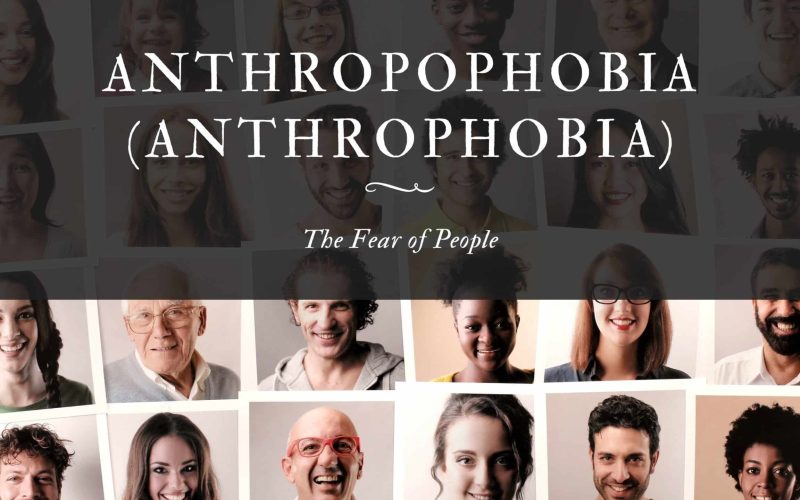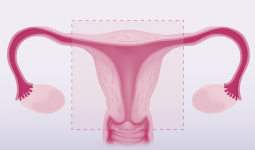Anthropophobia is defined as the fear of people. This is one of the most commonly misunderstood anxiety or phobias. It often mimics social phobia but is not precisely the same fear.
Depending on how severe, anthropophobia may trigger a phobic reaction even when a sufferer is in the company of just one other person, even a significant order.
In extreme cases, people who have anthropophobia may completely withdraw and only communicate with others through snail mail or via electronic means of communication such as social media, private messages, e-mail, or text messaging.
Why a Fear of People is Not the Same Thing as Social Phobia
Social phobia is a diagnosis that involves a broad range of social fears. Some individuals who have social phobia are afraid of only specific situations, like laughing in the presence of people, public speaking, or even eating in front of people.
Some others are typically scared of all social situations. However, the primary thing that defines social phobia is the focus, which is the fear of a social situation.
In anthropophobia, the fear is not of social situations but literally of other people, no matter the situation in which the people are encountered.
In cases of Anthropophobia, relatives who are the sweetest and are known for being friendly and genuinely loving are considered at the same threat level as strangers in an elevator or on a crowded bus.
While people with social phobia typically feel somewhat less frightened in situations that where they feel anonymous, people who have anthropophobia may be quite uncomfortable whether they climb on stage or hide at the back row of a sold-out theater.
The differences between both phobias are subtle, and proper diagnosis can be quite tricky. Therefore, it is essential to seek the assistance of a professional when you notice a constant fear that involves other people (especially random people).
Causes of Anthropophobia (Anthrophobia)
Like all other phobias, it is difficult to blame a particular phenomenon as the cause of anthropophobia; thus, it is concluded that a variety of events or childhood experiences can increase the chances of developing this fear.
Suppose a person has been on the receiving end of a violent crime or has had to deal with emotional or psychological abuse or bullying. In that case, such a person may be at high risk for developing a severe fear of people and may even get panic attacks when amid people or in the company of a single person. This intense feeling of dread for humans is anthropophobia.
Another possible cause of anthropophobia is the presence of other mental health or neurological conditions that may increase a person’s risk.
For example, children and adults on the autism spectrum are known to express a strong preference for being on their own.
If caregivers or parents do not treat this tendency with a delicate balance of social skill training and solitude, there is a high chance that the fear of people may develop.
Those people who have disorders that lead to paranoia, such as schizoaffective disorder, schizophrenia, or bipolar disorder, may also stand a higher risk of developing this fear of people.
However, for many people who have been diagnosed with this phobia, there is no clear-cut cause for their fear. Anthropophobia may start at any time in a person’s life.
Fortunately, the cause of this phobia doesn’t need to be known before it can be treated by a mental health professional or a therapist.
Symptoms of Anthropophobia (Anthrophobia)
Anthropophobia normally causes symptoms that are similar to those of any other common phobia.
When spending time with other people, a person with anthropophobia may start to sweat and shake. You might turn red and have trouble breathing normally.
You might feel like your pulse is racing. You may find speaking difficult or even developing coherent thoughts difficult or impossible.
Sufferers of this fear will likely experience an intense fight or flight response, in which they feel an intense and overwhelming need to leave the presence of the person or people they are with.
Additionally, a sufferer may worry that other people are judging them for everything, from how they dress to their choice of words.
They may also be unable to make or maintain eye contact even with relatives or trusted friends.
Anthropophobia usually causes anticipatory anxiety also. In the days leading up to a meeting or an encounter with family, friends, or strangers, a person with anthropophobia may have trouble finding sleep.
They might feel physical distress, such as headaches or stomach problems, when thinking about the upcoming event. There will also be a temptation to cancel, stand a date up, or not show up at an event.
When left unattended or untreated, anthropophobia will become worse over time. What starts as a relatively minor fear of being with schoolmates or surrounded by strangers could blow up to include any group of people, even relatives, and close friends, and eventually to one-on-one encounters.
Some of the people with severe anthropophobia may have to quit school or work and actively do all things possible to avoid seeing anyone.
Treatment
Like all phobias, anthropophobia can’t be diagnosed with a lab test, but it responds quite well to a range of different treatment methods.
If lucky enough to be caught in an earlier stage, possible treatment may involve only a few sessions of brief therapy during which the sufferer learns to replace their fearful thoughts with other positive ones.
Cognitive Behavioral treatment or behavioral training like systematic desensitization, where a sufferer is slowly exposed to triggers and allowed to associate them with positive thoughts or things, is often used.
Anthropophobia is a severe anxiety disorder as it interferes with one of the most vital human needs, the need for social relationships or contact. Hence, it is worth the extra effort to seek treatment.
If your or a friend’s anthropophobia is extreme, therapy sessions may take more time. Sufferers may have to spend several sessions where they will learn how to tolerate sharing the same space with the therapist before they can progress.
Nonetheless, with hard work and persistence, getting better and overcoming even the most extreme case of anthropophobia is possible.
Be patient with loved ones who have anthropophobia, and be kind to yourself if you are a sufferer.
The goal is to keep pushing through until the phobia becomes a thing of the past. If you have any questions, inquiries, or suggestions, please leave them in the comments section provided below this article.







